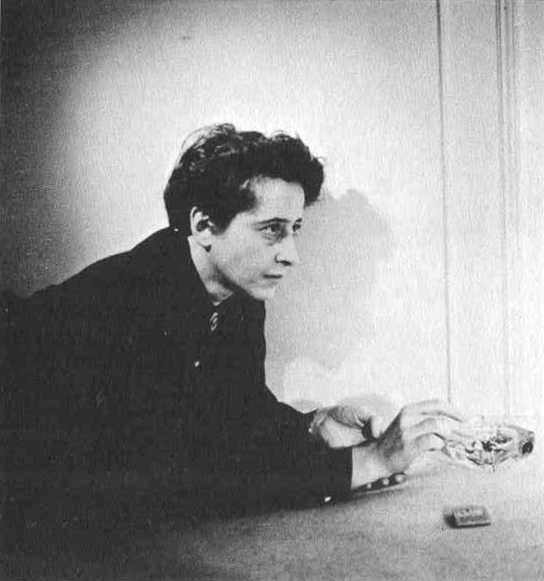Goleb presents: Hannah Arendt's The Crises in Culture: Its Social and Its Political Significance
Sunday, November 6 - 12h00 + 16h00
• 12h00 - reading group session, hosted with an introductory talk by Jeremiah Day
• 15h00 - group lunch
• 16h00 - Guest Presentations: The Question of Function - three examples of the status and role of culture in public life, featuring Tanja Baudoin, Florian Göttke, and Stefan Wharton; open discussion and drinks to follow.
Goleb is pleased to announce a special Sunday session of the on-going series Hannah Arendt's The Crisis in Culture: Its Social and Its Political Significance. The session is open to the public with no prior attendance or preparation necessary. As in the first two sessions, the text will be read aloud, with frequent pauses for discussion.
At 16:00, Goleb invites three guest speakers to present their practice and research, serving as examples to continue the conversation from the reading session. Warm drinks and snacks will be available and lunch will be served during the break.
The Question of Function
Arendt insists quite clearly that neither culture nor society are generic or neutral terms, but are rather conditioned by specific historic moments (it is interesting to note that for Arendt, the social can even be the opposite of the political). Arendt also asserts that culture has no function, strictly speaking, but at the same time argues that art does have a role to play in political life.
In this afternoon session we will take up this paradoxical framework and explore it through several concrete projects dealing with the public reception and response to culture, looking at examples from text, music and architecture. Through a consideration of parallel disciplines we will lay the groundwork for an open discussion on how Arendt's ideas might relate to contemporary visual art.
Tanja Baudoin (NL) organizer of the discursive programme of If I Can't Dance, I Don't Want To Be Part Of Your Revolution, will discuss the on-going reading group hosted by If I Can't Dance, and how it has over the years continued to facilitate discussion on art practice and theory - moving somewhere between a think tank and a place for open debate and exchange.
Florian Göttke (DE) will present part of his on-going project Eagles and Lions. The project considers the way in which monuments and architecture were positioned as arguments in the fight for supremacy between communist and capitalist ideologies in East and West Berlin. Göttke is a visual artist based in Amsterdam; his book Toppled, a work tracing the ups and downs of Saddam Hussein's statues, was nominated for the Dutch Doc Award 2011.
Stefan Wharton (UK) will talk about the social significance of improvised music, with particular concern for the politics of sonority, and the implications of marginalisation, in particular the Leeds Improvised Music Association (LIMA) – a regional improvised music collective – with regard to how such music can act to genuinely shape the society that surrounds it. Wharton is both a practicing musician as well as pursuing research in musicology at the University of Amsterdam.
For more information contact :golebreadinggroup@hotmail.com
Hosted by Taf Hassam and Igor Sevcuk, GOLEB.
Tanja Baudoin and Florian Göttke are DAI-faculty members, Taf Hassam is an alumnus of the DAI.

